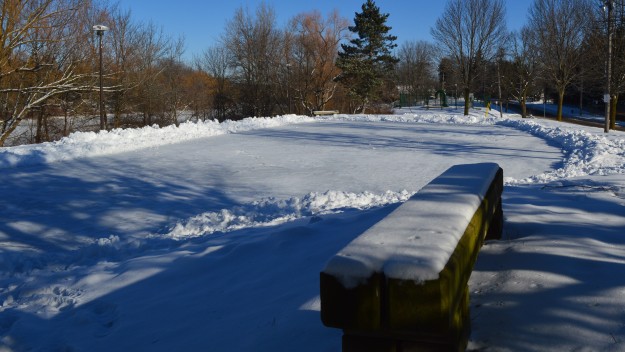By Joe Barkovich, Scribbler-at-large
One of the original King Street Boys has left town.
Steve Krar, the once-prolific author and co-author of technology textbooks, has been moved from Welland.
He is now a resident of St. Joseph’s Villa, a long-term-care facility in Dundas. He was moved there Thursday, Feb. 19.
I phoned him this afternoon.
The conversation was short and bittersweet. At first he didn’t remember me. This from a man who could talk about life in the ’30s like it was yesterday.
“I’m as well as I can be,” he said when asked how he is doing.
I made small talk.
He has visitors now and then, he said.
He does not have a computer and misses it, he said.
He still has a good sense of humour.
“Everybody tells me I’m too young to be old,” he quipped, then laughed. I laughed with him.
Steve would very much like to hear from friends in Welland and area.
He would appreciate telephone calls and personal visits, said his daughter Judy.
Steve, who turned 90 last summer, has dementia.
“His voice is weaker and conversational skills are deteriorating so be prepared to do most of the talking. He is experiencing constant exhaustion that requires frequent naps especially after meals,” Judy wrote in an e-mail.
Steve is well known in Welland and beyond. He was a tech teacher and department head at Eastdale Secondary School for many years. He authored or co-authored many technology text books, some of them international best sellers. He wrote a well-read technology column for his hometown newspaper. He promoted the celebration and preservation of neighbourhood culture in Welland, first as a co-founder of the King Street Boys, later as a member of the Welland Boys committee and reunions, attending the most recent reunion last October. He has other affiliations as well.
He is in good company in his new surroundings.
His brother, Frank, is also in St. Joseph’s Villa, Judy said.
Steve is on the fourth floor, Frank is on the third.
“They are enjoying their reunion as the last surviving siblings,” Judy said.
For those who care to visit, the address of St. Joseph’s Villa is: 56 Governor’s Rd., Dundas. Parking is off Oldfield.
He is in the North Tower, 4th Floor, room #446 in the Tuplic Garden wing (right off the elevator and first wing on the right after crossing the lounge area).
Steve has a telephone of his own. His direct number is 1-289-238-7900 “so please remind him that you are thinking about him,” Judy asks.
Mail is not being redirected there due to the progression of Steve’s dementia so a mail box has not been set up, Judy said.
But a call or a visit would mean so much.
“My father is trying to hang onto his life in education, publishing and technology so a connection from you would be great, whether it’s a phone call or a visit.”
(A former reporter and city editor, Joe Barkovich lives in his hometown of Welland, Ontario, Canada’s Rose City.My View appears as a recurring feature.)

















